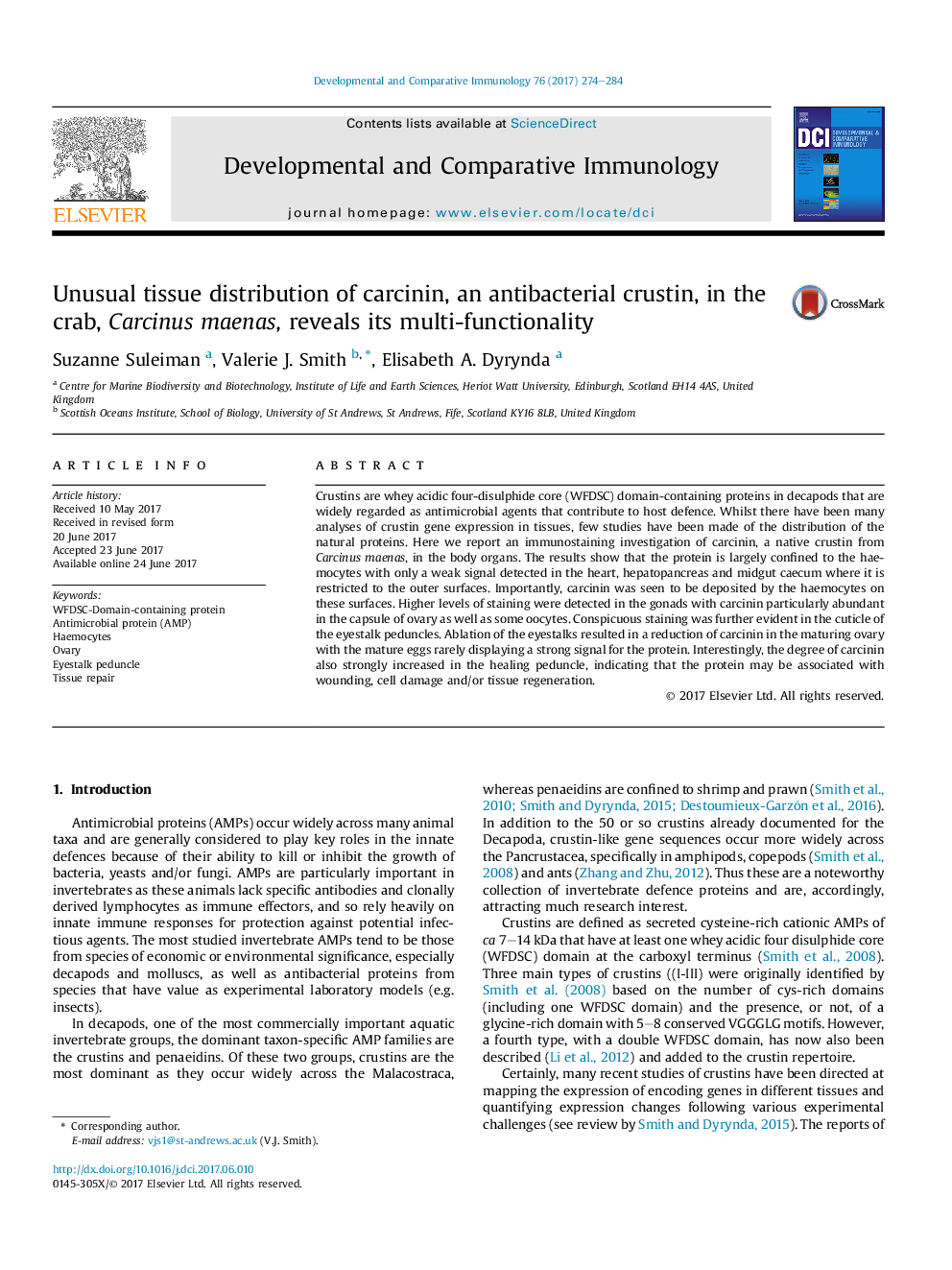| Article ID | Journal | Published Year | Pages | File Type |
|---|---|---|---|---|
| 5540142 | Developmental & Comparative Immunology | 2017 | 11 Pages |
Abstract
Crustins are whey acidic four-disulphide core (WFDSC) domain-containing proteins in decapods that are widely regarded as antimicrobial agents that contribute to host defence. Whilst there have been many analyses of crustin gene expression in tissues, few studies have been made of the distribution of the natural proteins. Here we report an immunostaining investigation of carcinin, a native crustin from Carcinus maenas, in the body organs. The results show that the protein is largely confined to the haemocytes with only a weak signal detected in the heart, hepatopancreas and midgut caecum where it is restricted to the outer surfaces. Importantly, carcinin was seen to be deposited by the haemocytes on these surfaces. Higher levels of staining were detected in the gonads with carcinin particularly abundant in the capsule of ovary as well as some oocytes. Conspicuous staining was further evident in the cuticle of the eyestalk peduncles. Ablation of the eyestalks resulted in a reduction of carcinin in the maturing ovary with the mature eggs rarely displaying a strong signal for the protein. Interestingly, the degree of carcinin also strongly increased in the healing peduncle, indicating that the protein may be associated with wounding, cell damage and/or tissue regeneration.
Keywords
Related Topics
Life Sciences
Biochemistry, Genetics and Molecular Biology
Developmental Biology
Authors
Suzanne Suleiman, Valerie J. Smith, Elisabeth A. Dyrynda,
